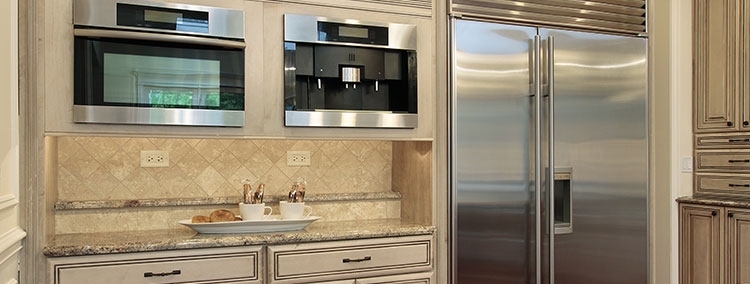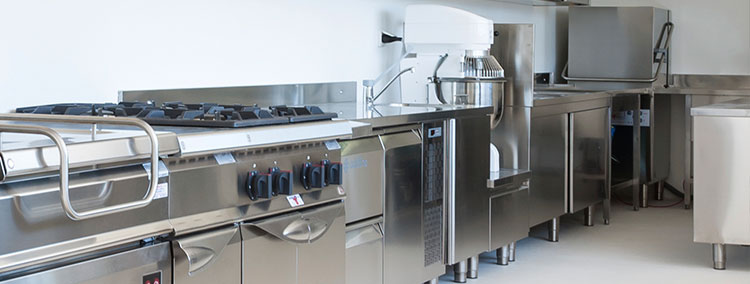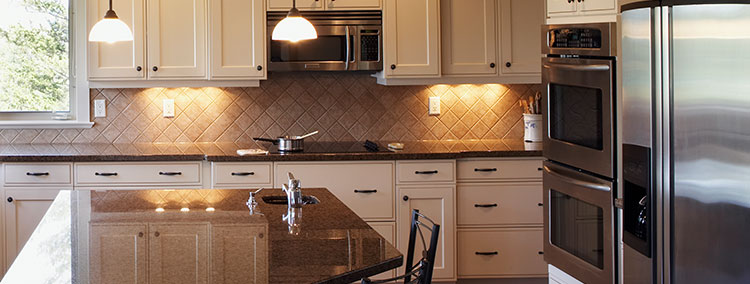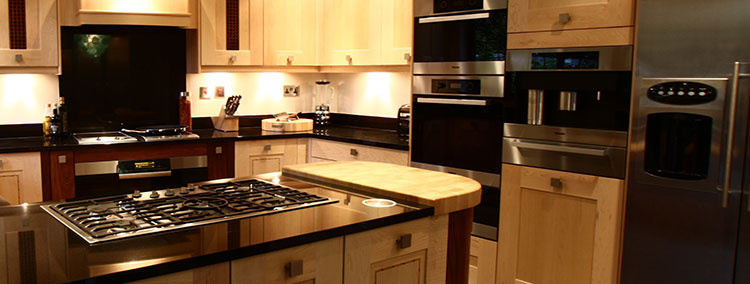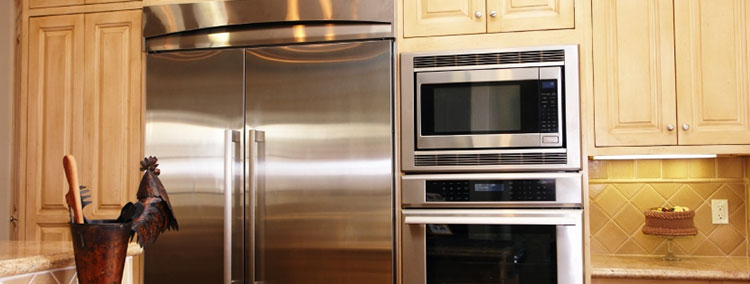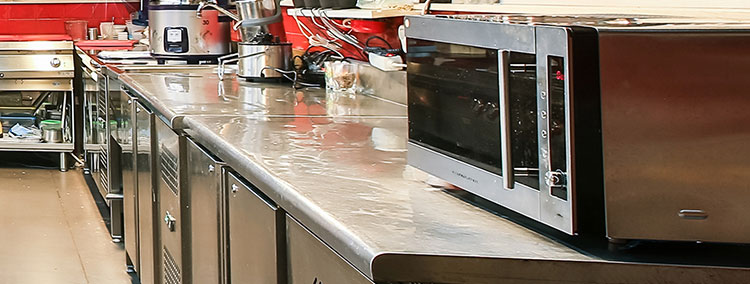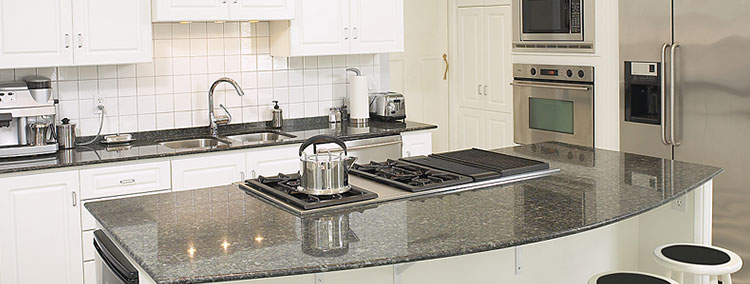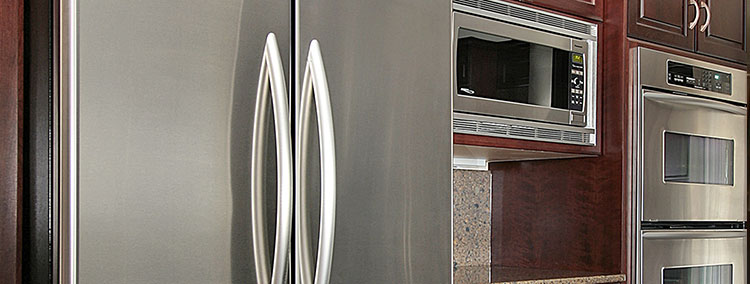
As winter approaches, many people feel that they will face the regular issue of ice buildup in their refrigerators and freezers.
You should note that ice buildup not only affects the efficiency of your appliance but it can also lead to food spoilage and increased energy consumption. You don’t want this, do you?
Fortunately, there are simple and practical solutions to this freezing issue. In this post, we’ll look at six practical techniques to keep your fridge and freezer ice-free over the winter months, ensuring that you keep off a refrigerator repair professional, have your appliance performing optimally, and your food stays fresh and well-preserved.
These tips might help you have a stress-free winter, whether you’re a culinary aficionado or simply want to keep your equipment operating optimally.
Remove the excess ice buildup.
To begin dealing with excessive frost and ice, empty your fridge and freezer compartments. Set the thermostat to the highest temperature and leave some towels handy to absorb extra water.
Ensure all the compartments are dry before reinstalling your food and altering the temperature.
This simple procedure will guarantee that your refrigerator remains frost-free and performs at peak performance.
Adjust the temperature
You need to regularly check the temperature of your refrigerator and freezer. Keep your refrigerator between 35 and 42 degrees Fahrenheit and your freezer close to 0 degrees Fahrenheit for best results.
You should note that frost or ice may form if temperatures dip below these temperatures. To ensure the fridge is at the proper temperature, you must place the fridge thermometer in the right place.
Position the thermometer at the center of the refrigerator for the most accurate reading. Some fridge thermometers stand alone, while others can be hung on a shelf. You should place your fridge based on its design.
If you have a stick-shaped thermometer in your fridge, submerge it in water.
Because the warmest position in your fridge is usually near the door, it can be a suitable alternative location for your thermometer.
For peace of mind that your fridge is at the proper temperatures, you must regularly monitor the temperatures.
Your thermometer will need some time to calibrate to the correct reading. So keep the door closed as much as possible to maintain a steady temperature.
To tell the accurate temperature, check the thermometer the next day to see if anything has changed.
If there are changes, adjust the unit.
Place the fridge correctly.
How you place your fridge can have a significant impact on ice formation.
You should be cautious and place your fridge in the right place. As a rule of thumb, do not put the refrigerator in your kitchen if it doesn’t have an exhaust system.
Instead, select a location that offers enough clearance from the wall to ensure appropriate cooling for the refrigerator’s compressor.
Reduce the frequency at which you open the fridge and freezer doors
Frequent opening of the door raises the humidity levels inside your fridge and freezer, which can lead to ice buildup and frost.
With this in mind, avoid leaving your fridge or freezer doors open while determining what to eat or which ingredients to pull out.
Instead, prepare a fast mental list of what you’ll need and get everything out at once.
If you have a two-door fridge, open only one door at a time. You should close the doors as quickly as possible in under one minute to prevent as much humidity from getting in as possible.
For example, combine the eggs, butter, and milk if you’re baking. You only have to open the door once this way.
If you have trouble remembering what’s in your fridge, keep a list of what’s inside posted on the fridge door. This way, you don’t waste time figuring out what is there and what isn’t.
Ensure you have a tight seal.
You should regularly inspect the seals on your refrigerator and freezer doors for air leakage symptoms, such as damp or frozen areas.
If a problem arises, you can use a simple process to replace the gasket.
The door seals are the long rubber strips that run around the edges of your door to keep cold air out.
If you notice cold air around the exterior of your fridge door or any visible damage, repair the seal to prevent your fridge from constantly running or warming up.
Close the door on a dollar bill to see if the fridge door seal is tight. Your seal remains intact if you encounter resistance when removing the dollar note. If it readily falls out, it’s time to replace them.
You can do the replacement if you have the skills, but if you have never done it before, let an expert help you.
You should note that the seals lining your fridge or freezer doors will not close correctly if they are caked with food residue or ice crystals.
Working on one door at a time, quickly scrape the inside of the seal with a damp cleaning cloth and mild dish soap.
Clean the frame of the refrigerator opening so the seal may sit flush against it. Wipe away any lingering wetness with a dry cloth before closing the door.
Ensure no moisture remains, as this could form an ice crystal.
Keep your fridge clean.
For the best fridge efficiency and ice frosting reduction, regularly clean your refrigerator’s cooling fan, vents, and condenser coils. You can remove the ice buildup with a hot, soapy cloth, pressing against frost and repeating until entirely melted.
You can do the cleaning without the help of an appliance repair Springfield professional, but if you notice a significant problem, such as the fridge giving off odors after cleaning, let an expert help you.
It can be tempting to deep clean a refrigerator using bleach and other chemical cleansers, but you should avoid it because bleach can damage surface materials and possibly release harmful toxins into your food.
To stay safe, use gentle dish soap and food-grade pantry staples like white vinegar and baking soda. This way, you can clean the interior of the fridge without risking chemical contamination or structural damage.
